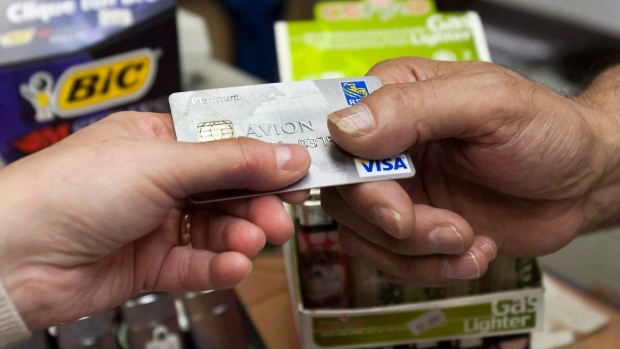Nov 16, 2021
Avoiding your finances? Here's how to regain control and take the fear out of debt
, The Canadian Press

Jenna Young began avoiding her finances after graduating with student debt from her law degree in 2015.
The 30-year-old executive assistant in Halifax left the legal field for better work-life balance, but wasn’t able to pay back her student loans as easily as she expected because she wasn’t making a lawyer’s salary.
While Young kept up with her minimum debt payments, she stopped checking how much she owed and ignored her bank account balance.
“On paydays, I would buy everything I thought I needed for the next couple of weeks right away, and just pray whatever was left would cover the rest of the bills that came out of my bank account automatically. I racked up some credit card debt during this time as well, mostly for unusual expenses that should have been predictable — things like winter tires, Christmas gifts, bigger purchases that only happen occasionally,” Young said.
“By the time my next payday was approaching, I’d be out of cash — sometimes overdrawn — and waiting impatiently for the next cash influx. I kept telling myself I needed to start paying off more of my debt, or at least get my spending under control, but it was so much easier to ignore.”
Young’s experience is not uncommon, as people tend to avoid their finances when they’re feeling fear, anxiety or failure, said Caval Olson-Lepage, a certified financial planner with Affinity Wealth Management in Saskatoon.
Finance avoidance might look like avoiding important bills and bank statements — and shouldn’t be confused with laziness because the avoidance comes from an emotional place, Olson-Lepage said.
“You tend to overspend. You don’t want to create a budget or if you do create a budget, you’re not sticking it. You’re also not willing to talk about money to your partner or friends. It becomes a very taboo subject,” she added.
Avoiding finances can have long-term consequences since it makes it difficult to achieve financial goals, such as paying down debt, saving for retirement or even a vacation, Olson-Lepage said.
And, by ignoring your financial statements, you might not realize that you’re paying high or unnecessary fees or service charges, overdrawing your account or that fraudulent charges have been made.
“A lot of people don’t realize that … there’s a window of time in which you can dispute a [fraudulent] transaction,” she added.
The first step to making a change is admitting that you’ve been avoiding your finances, and then forgive yourself, Olson-Lepage said.
After that, try opening a bank statement or looking at your online banking for five minutes per day. Once you’re comfortable with that, start opening bills and credit card statements, she said.
Eventually, financial avoiders can turn this daily habit into a weekly habit once they’re more at ease looking at their bank accounts, and more aware of their financial situation.
“They have to look at [these statements] and tell themselves it’s just a number. A lot of people will open their bank account, see the number in there and feel like it’s not big enough or they’re not where they think they should be,” Olson-Lepage said.
Talking about your finances is also important, whether it’s with a partner or a certified financial planner, she added.
In 2017, Young made a New Year’s resolution to take charge of her finances.
“It’s the only resolution I’ve ever stuck to,” she said. “I was so tired of being anxious all the time.”
Young created a budget that tracked all of her incoming and outgoing money. She’d check the spreadsheet every payday to ensure her expenses were covered. She also began making notes on her phone of how much money she had available for spending on items, like gas and groceries.
Once she got comfortable with her biweekly check-ins, she created a table listing of all her debts.
“It was terrifying to see the total amount owed. I didn’t want to think about it. But that also let me track as the numbers went down and I could see real progress happening. This was a huge help. I started spending within my means, saving up for unusual expenses, and paying off my debts. Emotionally, it made me feel way less anxious about money because I knew I was in control,” Young said.
“I still sometimes spend money I shouldn’t, and if I’m feeling anxious, I occasionally skip a biweekly check-in. But I know that’s not good for me, and I know how to get back on track quickly and easily. I feel so much better overall when I do the hard thing and sort out my financial situation.”






